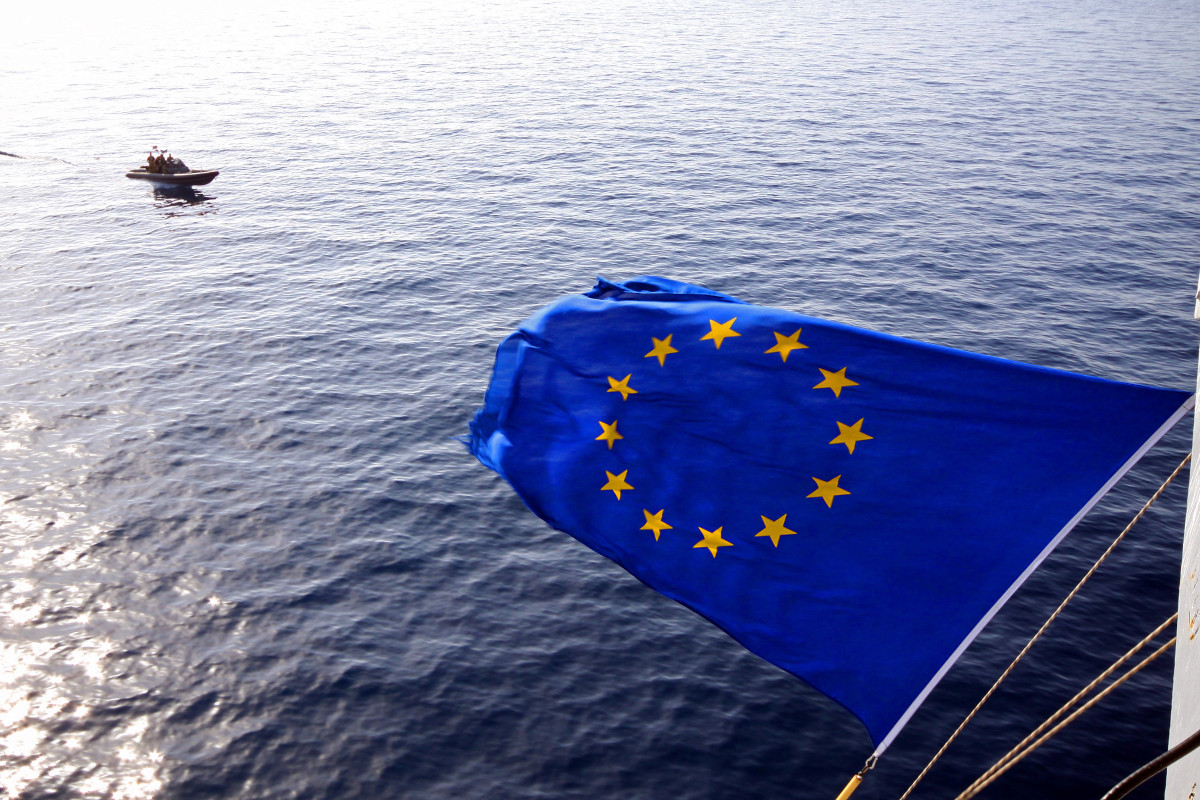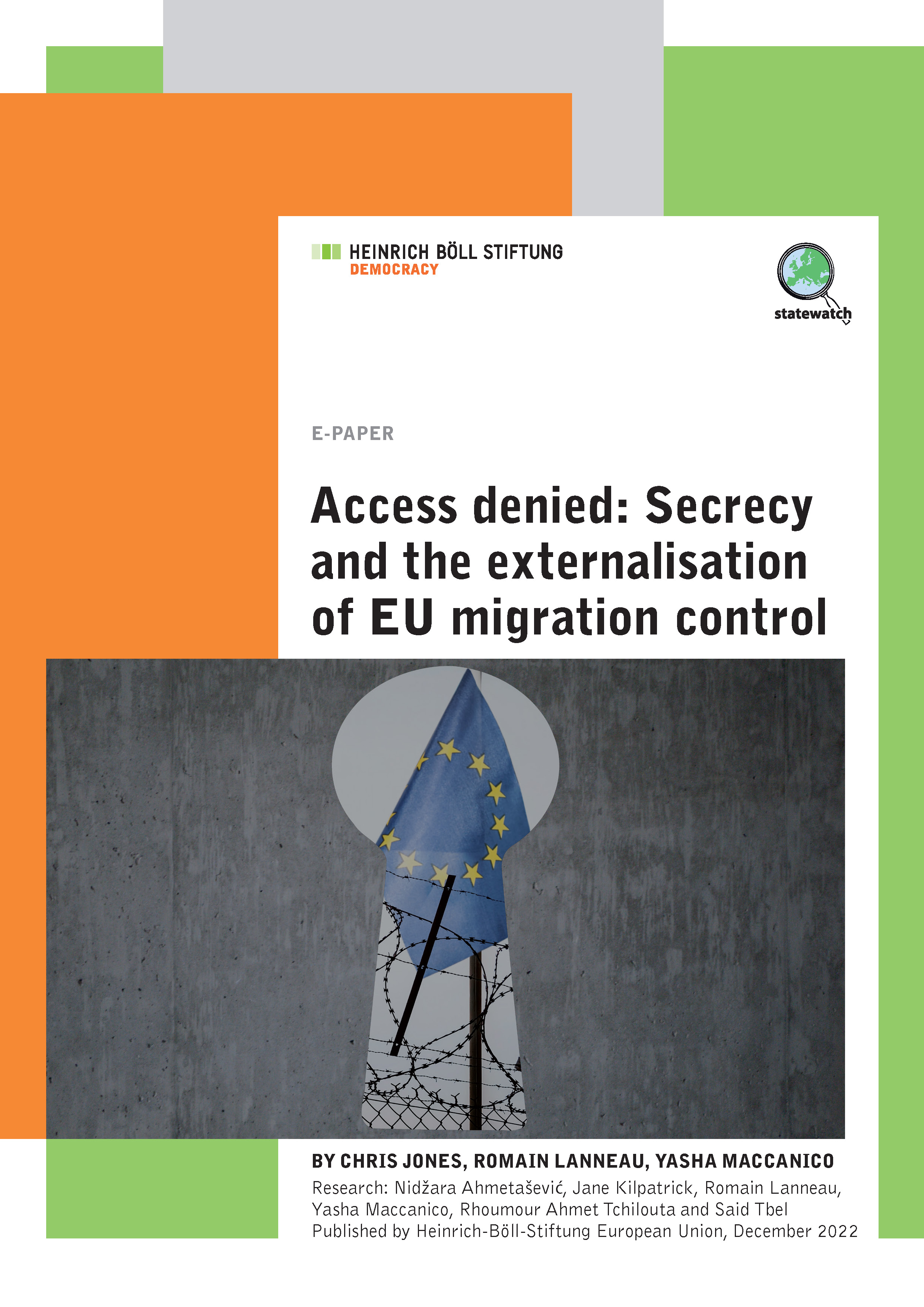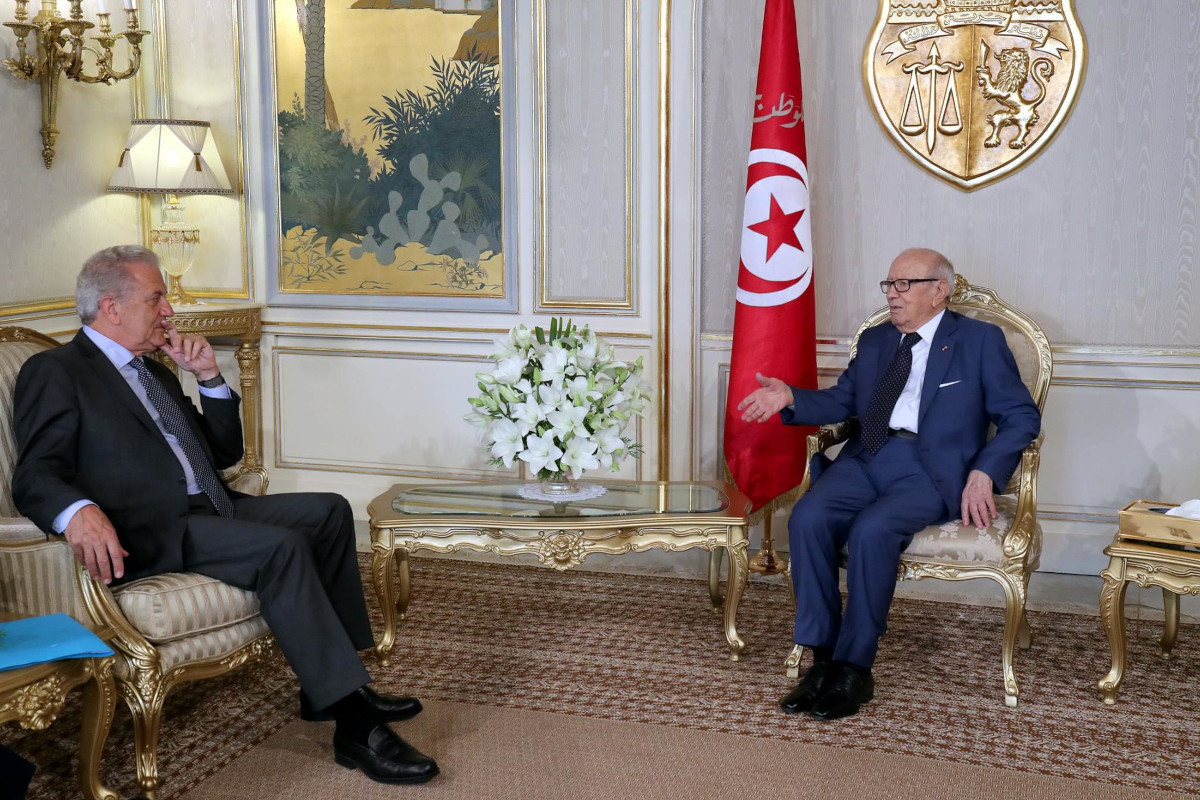Hardwiring the externalisation of border control into EU law
Topic
Country/Region
04 April 2024
EU institutions have almost finalised negotiations on the Pact on Migration and Asylum, with MEPs due to vote on a range of new laws next week. Approval for the measures is almost certain – and when they come into force, they will turn the externalisation of migration and border control into legal obligations.
Support our work: become a Friend of Statewatch from as little as £1/€1 per month.

Image: European Union Naval Force Operation Atalanta, CC BY-ND 2.0
A new bureaucracy
The Asylum and Migration Management Regulation (AMMR, pdf), which will pass into law alongside a number of other measures, introduces a labyrinthine new “common framework for the management of asylum and migration in the Union.”
This will require ceaseless planning, reviewing, reporting and assessment involving the member states, the Commission, EU agencies and various new bodies such as “The High-Level EU Solidarity Forum”, “The Technical-Level EU Solidarity Forum” and “The EU Solidarity Coordinator”.
Solidarity all round
The reason for all these new bodies and roles is that the AMMR introduces a new “mechanism for solidarity” between member states. Along with the “permanent EU Migration Support Toolbox,” this will provide new means for the externalisation of EU migration and border controls – a process that has caused multiple human rights abuses and has led to the EU and its member states “bankrolling dictators”.
The new “Toolbox” is being introduced to provide support to member states in fulfilling their obligations under the AMMR, and includes “operational and technical assistance” from EU agencies such as Frontex, Europol and the EU Asylum Agency; EU funding; and the ability to derogate from the law in times of “crisis”.
It also includes a host of measures for cooperation with non-EU states:
- “strengthened actions and cross-sectoral activities in the external dimension of migration”;
- “enhanced diplomatic and political outreach”;
- “coordinated communication strategies”;
- “supporting effective and human rights based migration policies in third countries”; and
- “promoting legal migration and well-managed mobility, including by strengthening bilateral, regional and international partnerships on migration, forced displacement, legal pathways and mobility partnerships.”
“In order to ensure that all relevant tools are used effectively to respond to specific migratory challenges, the Commission should have the possibility to identify the necessary measures from the Toolbox,” says the AMMR, and “Member States should endeavour to use components of the Toolbox in conjunction with the Solidarity Pool.”
From the Toolbox to the Pool
The “Solidarity Pool”, which will be financed through contributions from the member states, will “serve as the main solidarity response tool for Member States under migratory pressure.”
It is designed to enable the relocation between member states of applicants for and beneficiaries of international protection, to fund “actions in Member States related to the area of migration, reception, asylum, pre-departure reintegration border management and operational support,” as well as “alternative solidarity measures.”
Funding provided by the member states can also be used for:
“…actions in or in relation to third countries that may have a direct impact on the flows at the Member States’ external borders or may improve the asylum, reception and migration systems of the third country concerned, including assisted voluntary return and reintegration programmes…”
Projects in non-EU states should, according to the Regulation, focus on:
- “enhancing the capacity of asylum and reception in third countries, including by strengthening, human and institutional expertise and capacity”;
- “promoting legal migration and well-managed mobility, including by strengthening bilateral, regional and international partnerships on migration, forced displacement, legal pathways and mobility partnerships”;
- “supporting assisted voluntary return and sustainable reintegration programmes of returning migrants and their families”;
- “reducing the vulnerabilities caused by human trafficking and smuggling as well as anti-trafficking and anti-smuggling programmes”; and
- “supporting effective and human rights based migration policies.”
The text does not exclude that “alternative solidarity measures” could take place in non-EU states, only specifying that they must relate to:
“…the field of migration, reception, asylum, return and reintegration and border management, focusing on operational support, capacity building, services, staff support, facilities and technical equipment…”
Member states can relocate refugees if they wish - or they can simply show their "solidarity" by funding border control projects in non-EU states, in what appears to be a system of "pay or protect".
A new “European Annual Asylum and Migration Report,” to be drawn up by the Commission, will provide the basis for working out what should go into the Toolbox and the Solidarity Pool every year.
The “comprehensive approach”
This is all part of a new “comprehensive approach”, and the Regulation includes a specific article on the “external components” of this:
“With a view to achieving the objectives set out in Article 3, the Union and the Member States shall, within their respective competences, promote and build tailor-made and mutually beneficial partnerships, in full compliance with international and Union law and based on the full respect for human rights, and foster close cooperation with relevant third countries at bilateral, regional, multilateral and international levels, including to:
(a) promote legal migration and legal pathways for third-country nationals in need of international protection and for those otherwise admitted to reside legally in the Member States;
(b) support partners hosting large numbers of migrants and refugees in need of protection and build their operational capacities in migration, asylum and border management in full respect of human rights;
(c) effectively prevent irregular migration and combat migrant smuggling and trafficking in human beings, including reducing the vulnerabilities caused by them, while ensuring the right to apply for international protection;
(d) address the root causes and drivers of irregular migration and forced displacement;
(e) enhance effective return, readmission and reintegration;
(f) ensure full implementation of the common visa policy.”
Documentation
- Proposal for a Regulation of the European Parliament and of the Council on asylum and migration management and amending Council Directive (EC) 2003/109 and the proposed Regulation (EU) XXX/XXX [Asylum and Migration Fund] (Council doc. 6365/24, 9 February 2024, pdf)
Our work is only possible with your support.
Become a Friend of Statewatch from as little as £1/€1 per month.
Further reading

Access denied: Secrecy and the externalisation of EU migration control
For at least three decades, the EU and its Member States have engaged in a process of “externalisation” – a policy agenda by which the EU seeks to prevent migrants and refugees setting foot on EU territory by externalising (that is, outsourcing) border controls to non-EU states. The EU’s New Pact on Migration and Asylum, published in September 2020, proposed a raft of measures seeking to step up operational cooperation and collaboration in order to further this agenda.

“Action file” on Tunisia outlines EU’s externalisation plans
An “action file” obtained by Statewatch lays out the objectives and activities of the EU’s cooperation on migration with Tunisia – whose government was heavily criticized by the European Parliament this week for “an authoritarian reversal and an alarming backslide on democracy, human rights and the rule of law.”

Tracking the Pact: Human rights disaster in the works as Parliament makes "significant concessions" to Council
Negotiations are close to an end on the new laws that make up the EU's Pact on Migration and Asylum, and the Council - which has consistently favoured rules that will downgrade human rights protections - appears to have largely got its way, according a document circulated by the Spanish Council Presidency yesterday. Amongst other things, the document openly admits that the Council is planning to sideline Parliament's concerns over "potential discrimination based on race."
Spotted an error? If you've spotted a problem with this page, just click once to let us know.
